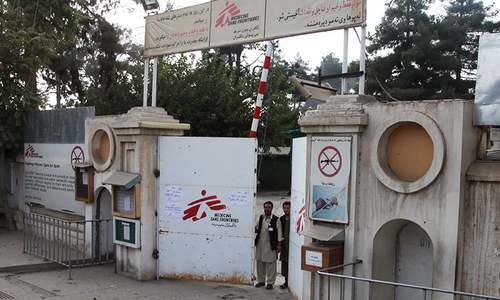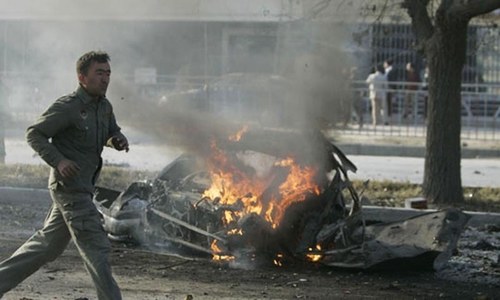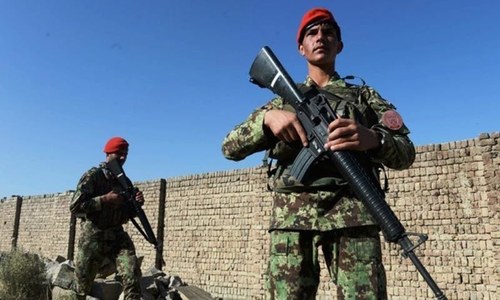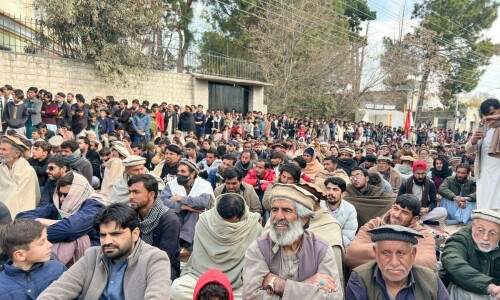KABUL: Afghanistan was once a magnet for foreign aid workers but surging violence has left NGOs struggling to recruit staff and restricted their ability to deliver crucial aid to the country's vulnerable.
Plagued by decades of war and natural disasters such as last month's earthquake, which killed more than 120 people in the country and left thousands homeless, up until around 2009 Afghanistan was considered a risky but rewarding post for humanitarian workers.
But with a resurgent Taliban leaving Afghan forces floundering and forcing Nato allies to extend their presence in the country, increasing attacks are leaving would-be volunteers jittery.
Posts now remain "empty for a long time" compared to a decade ago, said Elise, of France's Acted NGO in Kabul, who declined to provide a last name.
Candidates need to be reassured "nobody is blowing themselves up every day in front of our door".
Afghanistan is considered the most dangerous country on Earth for aid workers, according to the Humanitarian Outcomes research group, which reported 54 major attacks against NGOs in 2014.
Meanwhile international attention has shifted to Iraq and Syria, says Philippe Bonnet, who has just completed his tenure as Afghanistan head of the French NGO Solidarites International.
"This is attracting youngsters, who are more prone to following current trends", he says.
Crises in South Sudan and the Ebola epidemic in west Africa also soaked up limited humanitarian resources in the last year, added Guilhem Molinie, country director for Doctors Without Borders (MSF).
Read: Roadside bomb kills two human rights workers in Afghanistan
Another Western official in Kabul said that NGOs "moved in five years from a few thousand volunteers to just a few hundred".
To attract employees, charities are offering short contracts -- sometimes as brief as six months.
"(They) leave just as they begin to understand the mission," Patrick, head of a Western NGO in Kabul who declined to give his last name, told AFP.
Changing tactics
The staff shortages combined with increased risks means many groups have scaled back work outside cities -- such as the World Food Programme (WFP), which withdrew in September from Badakhshan, a once-calm northeastern province, after an attack on five of its trucks.
"Physically, expats can no longer go to many places, but NGOs are trying to find alternative means", said Fiona Gall, the director of Acbar, a group that represents more than 130 NGOs working in Afghanistan.
Instead, charities are now working via telephone or bringing local workers from conflict areas to where they are based for discussions.
"There are creative ways but it's not as satisfactory as you going", she said.
Despite the setbacks, the number of registered NGOs in the country has remained relatively steady -- 274 today compared to 293 two years ago.
Also read: US air strike on MSF hospital kills nine in Afghanistan
But NGOs warn that scaling back staff could reverse recent gains, especially in the health sector, where their work has been critical.
Infant mortality has dropped from 93 deaths per 1,000 live births in 2001 to 66 today, according to the World Bank, a gain credited to aid groups among others.
"Children are often the first to benefit from the work of health programmes," said one Western aid worker.
Money is not the problem — some $16 billion poured into the country from international coffers between 2012 and 2015, with similar pledges promised over the next two years.
But the management of those funds is a hurdle for NGOs seeking to attract foreign workers.
Donors are sending money through the government, Acbar's Gall said, meaning "there's a huge amount of bottle-necking and funds are not being dispersed as rapidly as they should be".
Walls are getting higher
Meanwhile catastrophic, headline-grabbing attacks such as a bungled US air strike on a MSF hospital in Kunduz last month both reinforce the challenges and underscore the need for aid.
The charity, which lost 13 staff in the bombing, has said it will not pull out of Afghanistan, but "it's very destabilising", Molinie told AFP.
The consequences for Afghans in Kunduz province have been devastating: the hospital was the only major trauma centre in a region that has been rocked by unrest.
Even in Kabul, risks have increased for NGO workers, with the Taliban regularly striking at the airport, hotels, restaurants and foreign compounds.
Officially, the Taliban say they respect the work of NGOs and do not target aid workers.
But they have also claimed attacks in places frequented by expatriates including aid workers, such as the January 2014 assault on the Taverna Du Liban in Kabul which killed 21 people including 13 foreigners.
Humanitarian organisations have barricaded themselves in two central Kabul neighbourhoods.
"As time goes on, the walls are getting higher," quipped one retired US soldier who now works as a security contractor.
Also read: Militant attack kills nine Afghan employees of Czech NGO: officials














































